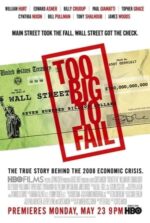When the Music Stops: Cinema & the Financial Crisis
Okay, let's talk about something heavy, but fascinating: how cinema has grappled with financial crises. It’s a topic that feels perpetually relevant, doesn’t it? We’ve all felt the ripple effects of economic instability at some point – whether it was the 2008 crash or more recent anxieties. And film, as always, is there to reflect and dissect those experiences.
It's easy to think of financial films as dry spreadsheets and jargon-filled boardrooms, but they can be surprisingly compelling, even visceral. Think about 42nd Street, a seemingly lighthearted musical – yet it’s fundamentally about the precariousness of an entire production hinging on one person. That feeling of everything being balanced on a knife edge? That's a perfect microcosm for what happens when economies falter.
The films listed really showcase different angles. Moscow 1996, Vote or Lose! offers a fascinating look at the chaos and uncertainty surrounding economic transition – something that’s often glossed over in simplified narratives. It reminds you how fragile democracy can be when people are struggling just to survive. Then we have Banksters, which is less about grand systemic collapse and more about the individual choices, the aggressive sales tactics, that contribute to a crisis. It's a chilling reminder of how easily ordinary people can be exploited in pursuit of profit – something I think resonates deeply with audiences today, especially given concerns around predatory lending practices.
Mountainhead, while perhaps less directly focused on economics, captures that feeling of privileged individuals suddenly confronted with the consequences of global instability. It’s about the unraveling of a world built on assumptions and wealth. And Master of the Universe? That's just… unsettlingly brilliant. The way it peels back the layers of a financial "mastermind," revealing the psychological mechanisms at play, is genuinely disturbing. It’s not just about money; it's about power, delusion, and the intoxicating allure of control – something that feels eerily relevant in our current climate of misinformation and economic uncertainty.
Finally, I.O.U.S.A. offers a more direct, documentary approach to understanding the complexities of national debt. It’s a sobering reminder that these aren't abstract concepts; they have real-world consequences for everyone.
What I find particularly interesting is how filmmakers are increasingly using genre conventions – political dramas, thrillers, even musicals – to explore these complex themes. They’re moving beyond simply explaining the what of a financial crisis and delving into the why – the human motivations, the systemic vulnerabilities, the psychological toll.
So, if you're looking for something that's both intellectually stimulating and emotionally engaging, I highly recommend exploring some of these films. They might not offer easy answers, but they will certainly give you a lot to think about.





































